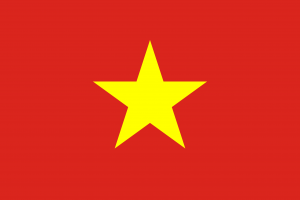Language/Vietnamese/Vocabulary/Family-Members
 Հայերէն
Հայերէն Български език
Български език 官话
官话 官話
官話 Hrvatski jezik
Hrvatski jezik Český jazyk
Český jazyk Nederlands
Nederlands English
English Suomen kieli
Suomen kieli Français
Français Deutsch
Deutsch עברית
עברית हिन्दी
हिन्दी Magyar
Magyar Bahasa Indonesia
Bahasa Indonesia فارسی
فارسی Italiano
Italiano 日本語
日本語 Қазақ тілі
Қазақ тілі 한국어
한국어 Lietuvių kalba
Lietuvių kalba Νέα Ελληνικά
Νέα Ελληνικά Şimali Azərbaycanlılar
Şimali Azərbaycanlılar Język polski
Język polski Português
Português Limba Română
Limba Română Русский язык
Русский язык Српски
Српски Español
Español العربية القياسية
العربية القياسية Svenska
Svenska Wikang Tagalog
Wikang Tagalog தமிழ்
தமிழ் ภาษาไทย
ภาษาไทย Türkçe
Türkçe Українська мова
Українська мова Urdu
Urdu
| ◀️ Possessive Pronouns — Previous Lesson | Next Lesson — Relationships ▶️ |
In this lesson, we will learn Vietnamese vocabulary related to family members. Vietnamese culture places a strong emphasis on family values and obligations, and it is important to understand how to refer to family members in Vietnamese conversations.
Don't miss the chance to check out these pages as you wrap up this lesson: How to Say Hello and Greetings & Vegetables.
Immediate Family Members
The most common family members you may need to refer to are your immediate family members. Here are the Vietnamese words for mother, father, sister, brother, and child:
| Vietnamese | Pronunciation | English |
|---|---|---|
| Mẹ | meh | Mother |
| Cha | chah | Father |
| Chị | chee | Sister |
| Anh | ahhn | Brother |
| Con | kon | Child |
- It is important to note that in Vietnamese, the words for older sister and younger sister, as well as older brother and younger brother are different. "Chị" refers to an older sister while "Em gái" is used for a younger sister. Similarly, "Anh" refers to an older brother and "Em trai" is used for a younger brother.
- The word "con" does not specify the gender of the child. The gender can be specified by adding the words "trai" for son and "gái" for daughter after "con".
Extended Family Members
In Vietnamese culture, extended family members are also referred to using specific words. Here are some of the most common words for grandparents, aunts, uncles, and cousins:
| Vietnamese | Pronunciation | English |
|---|---|---|
| Bà | bah | Grandmother (maternal) |
| Ông | ohng | Grandfather (maternal) |
| Nội | noy | Grandmother (paternal) |
| Ong | ohng | Grandfather (paternal) |
| Dì | dee | Aunt (father's sister) |
| Cô | caw | Aunt (mother's sister) |
| Chú | choo | Uncle (father's brother) |
| Bác | bahk | Uncle (mother's brother) |
| Anh em họ | ahhn eh-huh | Cousin |
- It is important to note that when referring to aunts and uncles, Vietnamese people often use the word followed by the person's name instead of the word alone. For example, instead of saying "Cô" for aunt, a Vietnamese person may say "Cô Lan" (Aunt Lan) to refer to their aunt.
In-Laws
When talking about in-laws, Vietnamese also has specific words to use. Here are some examples:
| Vietnamese | Pronunciation | English |
|---|---|---|
| Vợ | vuh | Wife |
| Chồng | chohng | Husband |
| Mẹ chồng | meh chohng | Mother-in-law |
| Bố chồng | boh chohng | Father-in-law |
| Cô dâu | caw dow | Bride |
| Chú rể | choo rê | Groom |
- The word "cô dâu" and "chú rể" are used to describe the bride and groom on their wedding day. However, many Vietnamese people continue to use these words when referring to people who are already married.
Learning vocabulary about family members and in-laws is important if you plan on communicating with Vietnamese people. It is also a great way to learn more about Vietnamese culture and values.
Tip
If you would like to respectfully speak to an elder who is not related to you, use "chú" for men and "cô" for women when addressing them.
Sources
- Vietnamese Vocabulary For Family - Ling App
- Family words in Vietnamese
- Vietnamese Vocabulary For Family. If you are invited to visit a… | by ...
Videos
How to Talk about Your Family in Vietnamese? - YouTube
365 Vietnamese: Family Words in Vietnamese (Part 2) - YouTube
Learn Vietnamese Family Members: How to Address Mom, Dad ...
Other Lessons
- Ask Directions
- Counting 11 20
- Months of the year
- Family
- House
- How to say Good Bye?
- Count from 1 to 10
- Idiomatic Expressions
- Fruits
- City
| ◀️ Possessive Pronouns — Previous Lesson | Next Lesson — Relationships ▶️ |

